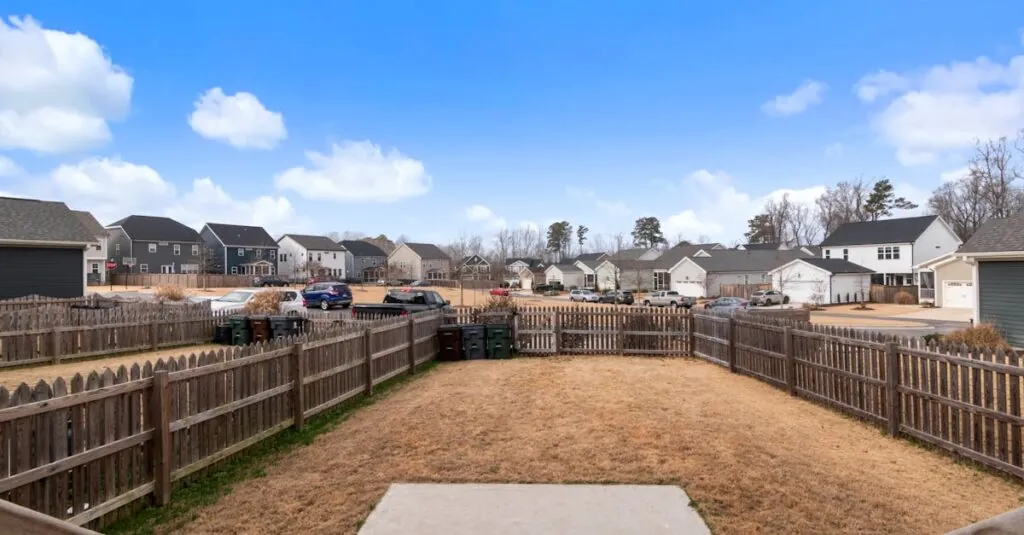Table of Contents
ToggleNavigating the world of property taxes and Homeowners Associations (HOAs) can feel like trying to solve a Rubik’s Cube blindfolded. On one hand, property taxes are that necessary evil everyone loves to hate, while HOAs can sometimes seem like the overzealous hall monitors of the neighborhood. But understanding the relationship between the two is crucial for homeowners who want to keep their wallets happy and their lawns pristine.
Imagine this: you just bought your dream home, and suddenly, you’re hit with a barrage of fees and taxes that make you question your life choices. Fear not! With a little knowledge and a dash of humor, homeowners can turn this confusing maze into a manageable stroll through the park. Buckle up as we unravel the mysteries of property taxes and HOAs, ensuring you’re well-equipped to tackle whatever comes your way.
Understanding Property Tax and HOAs
Navigating property tax and Homeowners Associations (HOAs) proves essential for homeowners. Clarity in these areas fosters financial stability and enhances property aesthetics.
What Is Property Tax?
Property tax is a fee levied by local governments based on property value. These taxes fund essential services, including public education, infrastructure maintenance, and emergency services. Assessments occur annually or biannually, reflecting market value fluctuations. Homeowners receive a tax bill detailing assessed values alongside rates used for calculations. Failure to pay can lead to penalties, including liens or foreclosure. Understanding local tax regulations, exemptions, and potential deductions empowers homeowners in managing costs effectively.
What Are Homeowners Associations (HOAs)?
Homeowners Associations, or HOAs, exist to oversee community standards and maintenance. These organizations collect dues from members to fund common area upkeep, amenities, and services. Membership typically occurs upon purchasing property in a designated area. HOAs enforce guidelines that govern property modifications, landscaping, and noise levels, aiming to maintain a neighborhood’s appeal. Regular meetings inform members about budgeting and new initiatives. Disputes may arise over rules or fees, making communication crucial for homeowner satisfaction.
The Relationship Between Property Tax and HOAs
Homeowners often wonder how property taxes relate to their Homeowners Associations. Understanding this relationship can ease financial stress while maintaining neighborhood standards.
How HOAs Impact Property Tax Assessments
HOAs can influence property tax assessments significantly. Property values may increase within well-managed communities, sometimes leading to higher tax assessments. An HOA maintaining common areas, amenities, and aesthetics positively affects market perceptions. Higher property values can result from attractive landscaping or updated facilities. Additionally, local assessors may consider HOA dues when calculating property taxes, as these fees contribute to the perceived value of a home. Homeowners must recognize that an active HOA can enhance property value, which directly impacts tax liabilities.
The Role of HOAs in Local Taxation
HOAs play a critical role in local taxation dynamics. While they don’t directly collect taxes, they create an environment that influences local governments’ tax strategies. Well-maintained communities may attract more investment and development, leading to increased tax revenues. Local officials often consider HOA contributions when planning budgets and distributing resources. HOAs can advocate for community needs, influencing local tax allocations. Through effective communication, these associations can also promote awareness about how local taxation affects property values, engaging homeowners in essential discussions.
Benefits and Drawbacks of HOAs Regarding Property Tax
HOAs play an essential role in property management, offering both advantages and disadvantages.
Advantages of HOAs in Property Management
HOAs often enhance property values through consistent maintenance of common areas. They enforce community standards that preserve neighborhood aesthetics, which can lead to increased property demand. Investment in amenities by HOAs can attract buyers seeking well-maintained environments. Membership dues support regular upkeep and improvements, ensuring that shared spaces remain appealing. Engaging with local authorities, HOAs can advocate for beneficial property tax assessments, potentially leading to lower costs for residents. Encouraging a strong sense of community fosters communication and collaboration among homeowners.
Disadvantages of HOAs and Their Financial Implications
Financial obligations linked to HOAs can be burdensome for some homeowners. Regular dues, sometimes substantial, contribute to personal financial strain if not budgeted effectively. Assessments may rise unexpectedly, adding additional financial pressure on residents. Conflicts over fees and rules can lead to disputes, often resulting in costly legal battles. Some homeowners perceive strict regulations and enforcement as a loss of personal freedom in property management. HOA involvement can complicate property tax calculations as local assessors factor in dues when determining tax liabilities for homeowners.
Navigating Property Tax Increases with HOAs
Homeowners encounter multiple challenges with property tax increases and HOAs. Understanding how to navigate these complexities can lead to better financial management and community satisfaction.
Tips for Homeowners
Homeowners should keep detailed records of their property improvements and any communication with their HOA. Staying informed about neighborhood changes helps in anticipating tax implications. Attending HOA meetings fosters relationships with board members, offering insight into the factors influencing dues and assessments. Reviewing property tax assessments regularly can identify discrepancies that warrant appeals. Engaging with neighbors often leads to shared resources and information about handling tax increases effectively.
Understanding Local Regulations
Local regulations significantly influence property taxes and HOA operations. Each jurisdiction maintains specific rules governing tax assessments and HOA authority. Homeowners must research their locality’s tax rates and any exemptions available to them. Familiarity with zoning laws also provides clarity on what improvements can increase property values and associated taxes. Awareness of how local government evaluates HOA services can aid in understanding potential impacts on property assessments. Engaging with local officials fosters a deeper understanding of how regulations interact with homeowners’ financial responsibilities.
Navigating the world of property taxes and HOAs can be challenging for homeowners. By understanding the interplay between these two financial obligations, they can make informed decisions that enhance both their property values and community satisfaction. Engaging with local regulations and maintaining open communication with HOA boards is essential for managing costs and resolving disputes.
Ultimately, a proactive approach can lead to a more harmonious living experience while ensuring financial stability. Homeowners who embrace this knowledge are better equipped to tackle the complexities of property taxes and HOAs, turning potential frustrations into manageable responsibilities.







